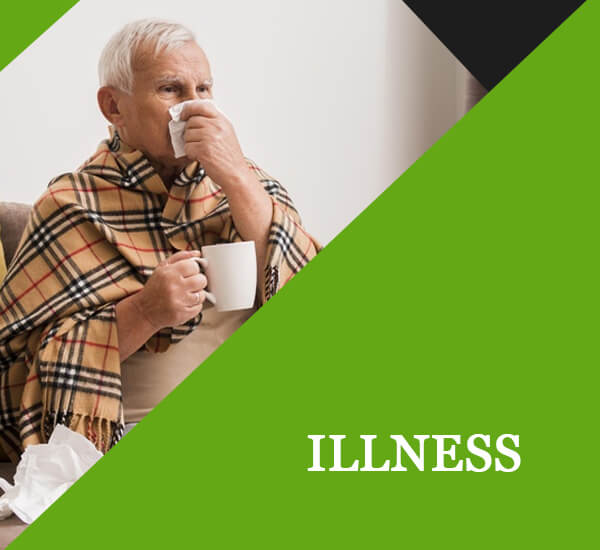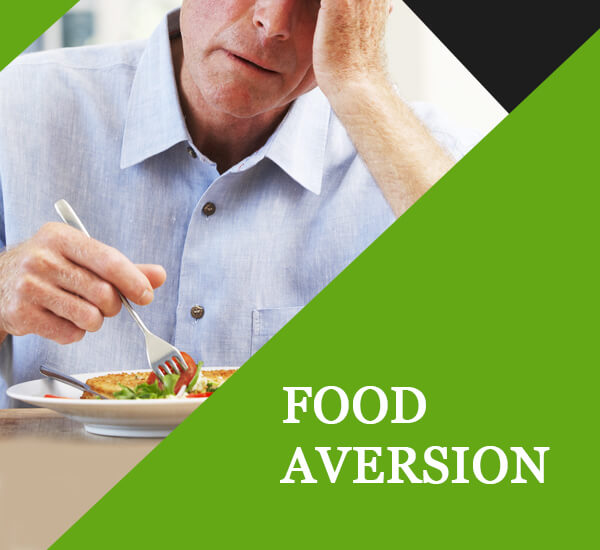The Best Ways to Deal with Appetite Loss in Seniors
As our loved ones age, it’s common to notice them becoming lean as they eat much less than they used to. This leads to rapid weight loss and is a cause for concern especially for those living alone at home or in assisted living facilities with poor food service.
Loss of appetite is often caused by underlying physical or mental issues. However, by identifying the signs and understanding the cause, you can ensure they receive adequate nutrition and stay healthy.
If someone close to you is having trouble getting the nutrition they require, these tips should help.
Loss of Appetite in the Elderly: Causes and Solutions
Here, we explore common reasons why seniors lose their appetite and how to help them maintain a nutritious diet.
Common Causes of Appetite Loss in Seniors 9
Appetite loss among the aged has many causes. Let’s look at some of the most common ones.
- ● Loneliness/Depression
Loneliness is one of the leading causes of appetite loss in seniors as they begin disliking mealtimes where they eat alone. This causes depression as loneliness intensifies over time.
- ● Illness
Undiagnosed illnesses are a leading cause of seniors losing their appetite. These can include periodontal diseases, Alzheimer’s or dementia, cancers (stomach, pancreatic, ovarian, and lung), kidney failure, and thyroid issues. Illness-related fatigue also leads to decreased appetite in aging adults.
- ● Medication-Related Side Effects
Different medications take come with several side effects, including appetite changes. Some even alter seniors’ perception of certain foods. Though they might have a healthy appetite, there’s a good chance that they no longer enjoy eating foods they once did.
On the other hand, a reduction in the dose of certain medications, like antidepressants, can alter their mood and food consumption. This is true even if they are hungry during mealtimes or have a healthy appetite.
- ● Food Aversion
A change in meal schedule or the types of foods being offered can also affect the appetite of the elderly. Often when older adults move into assisted living facilities, changes to meal timings or how their food is prepared can cause them to eat less than usual. This is especially common in older adults who are new to this lifestyle and those who follow a strict diet.
How to Help Aging Adults Overcome Appetite Loss
While there are many reasons why they may experience appetite loss, there are several practical ways for caregivers and loved ones to help.
| NOTE: If an older loved one is experiencing unintentional weight loss, they should see a doctor to diagnose any underlying condition. They may alter medications that could be a contributing factor. |
Following these tips will help your older loved one overcome loss of appetite and consume a well-balanced and healthy diet.
1. Set a Routine
Our bodies thrive off of consistency; that includes our thirst and hunger signals. So, when we start straying from that regularity, our appetite does too.
If your elderly loved one doesn’t follow a mealtime routine, slowly begin by introducing a snack or beverage during their meals. Doing this can stimulate their body’s hunger signals and encourage it during specific times throughout the day.
2. Include Nutrient-Dense Foods
For many seniors, a big plate of food can be overwhelming. The alternative is to include foods that are rich in complex carbohydrates, protein, minerals, and vitamins in smaller quantities. This ensures that their body receives the nutrients it needs to function properly, even if they consume a small amount.
Include lean meats, healthy fats, fresh vegetables/fruits, and whole grains. For instance, if their lunchtime food includes pizza, add more veggies instead of extra cheese to turn it into a healthier meal. Avocados, whole milk, nuts, and olive oil are just some of the products that can raise their calorie consumption without making it seem like they are being overfed.
3. Use Spices and Herbs to Enhance Flavour
The easiest way to get seniors to enjoy their food is to add spices or herbs (dried or fresh) to add more flavour.
However, be careful not to add too much because a rich diet might be difficult for them to digest. Go easy on the salt, and instead add a dash of onion or garlic powder, a few drops of lemon juice, thyme and/or rosemary, depending on what you’re cooking. Use a few different combinations to figure out what they like.
4. Encourage Social Mealtimes
As mentioned, loneliness and depression are some of the leading causes of senior appetite loss. A great way to ensure they enjoy mealtimes is to help make it a social activity instead of a chore.
If you are a primary caregiver or family member, eat with them daily and ask others to do the same. Alternatively, if they live in an assisted living facility, encourage them to eat with their neighbours. This will help them make connections that can be beneficial for their mental health too.
5. Consider Appetite Stimulants
If nothing seems to work, consider talking to their doctor about prescribing appetite stimulants. However, be sure to discuss their advantages and disadvantages as some may have side effects. Furthermore, it’s important to find out whether the stimulant is contraindicated with the other medications.
It’s possible to promote healthier eating among seniors and ensure they receive the nutrients they need by taking the necessary precautions and seeking medical advice. They can lose their appetite due to many factors, but it’s important to address the issue as not doing so can increase the risk of other illnesses. Try these tips to discover which works best. Also, be sure to thoroughly find out about their assisted living or senior care facility. This can prevent loneliness, ensure they have the help they need and offer opportunities for them to interact with others which can lead to an overall healthy and balanced lifestyle.










